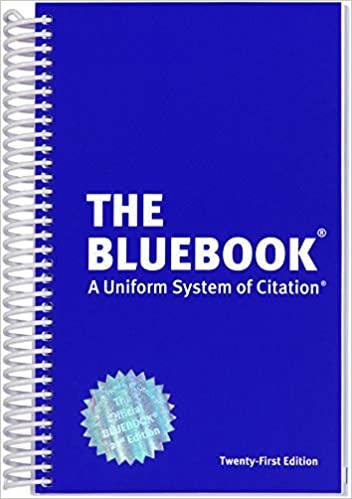Question
Question 23 Under Ontario's Pay Equity Act , there is a cap on the amount of pay equity adjustments that a Part II private sector
Question 23
Under Ontario'sPay Equity Act, there is a cap on the amount of pay equity adjustments that a Part II private sector employer who prepared a pay equity plan has to make each year. This cap is equal to:
Group of answer choices
5% of the employer's annual payroll
3% of the employer's annual payroll
2% of the employer's annual payroll
1% of the employer's annual payroll
Question 24
Under Ontario's ESA, an employee is entitled to receive three weeks' vacation time after:
Group of answer choices
10 years of service
15 years of service
5 years of service
none of these
Question 25
Which one of the following days is NOT one of the nine public holidays set out in Ontario's ESA?
Group of answer choices
Canada Day
Boxing Day
Labour Day
Remembrance Day
Question 26
To qualify for pregnancy leave under Ontario's ESA, a pregnant employee must have:
Group of answer choices
been hired at least 13 weeks before the expected due date
worked at least 13 weeks before the expected due date
been hired at least 17 weeks before the expected due date
worked at least 17 weeks before the expected due date
Question 27
Ontario's family responsibility leave provisions entitle employees to up to ____ unpaid days of leave per calendar year because of an illness, injury, medical emergency, or urgent matter relating to certain relatives:
Group of answer choices
seven
ten
five
three
Question 28
Which of the following types of employees are NOT covered byanyof the provisions of Ontario's ESA?
Group of answer choices
police officers
students under 18
professionals
high school or college students performing work in a work-experience program
Question 29
Generally speaking, the requirements of the federalPersonal Information Protection and Electronic Documents Act(PIPEDA) do NOT apply to personal information held by provincially regulated employers in Ontario that relates to their:
Group of answer choices
customers
employees
employees
independent contractors
Question 30
InCentre for Addiction and Mental Health v Ontario Public Service Employees Union, the employer decided to conduct surveillance on one of its employees because it wanted to investigate a report that he was working elsewhere while on paid suspension. Upon his return from suspension, the employee claimed that an aversion to water prevented him from performing alternative work in the kitchen (i.e., washing dishes) that the employer offered to him. However, during the video surveillance he had been captured on tape watering his lawn. In the grievance arbitration related to his subsequent dismissal, the arbitrator decided that the videotaped evidence showing him watering his lawn:
Group of answer choices
was inadmissible because the initial reason for the surveillance was different from the ultimate reason for dismissal
was admissible because the video surveillance occurred in a public location where he had little expectation of privacy
was inadmissible because the initial reason for the surveillance was not reasonable
was admissible because it was relevant to the issue of his claimed aversion to water
Question 31
Which of the following employer actions may constitute constructive dismissal for non-union employees?
Group of answer choices
temporary layoffs
probation
All of these
suspension without pay
Question 32
Condonation refers to a situation where:
Group of answer choices
an employer is aware of misconduct but takes no disciplinary action within a reasonable time
the employment contract no longer reflects the employment relationship
the termination clause in the employment contract is unenforceable
the employment contract is ambiguous and therefore will be interpreted against the employer
Question 33
The practice of progressive discipline first arose:
Group of answer choices
in the public sector
in unionized workplaces
in non-unionized workplaces
none of these
Step by Step Solution
There are 3 Steps involved in it
Step: 1

Get Instant Access to Expert-Tailored Solutions
See step-by-step solutions with expert insights and AI powered tools for academic success
Step: 2

Step: 3

Ace Your Homework with AI
Get the answers you need in no time with our AI-driven, step-by-step assistance
Get Started


